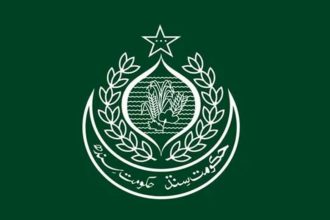“Pakistan no longer needs the International Monetary Fund’s (IMF) financial support” Finance Minister Ishaq Dar announced earlier yesterday as he cautioned that the country still needs to consolidate its economic gains made over the last two years.
“Pakistan does not need the IMF anymore,” Dar insisted at a news conference in Islamabad when asked if the time had come for the country to bid the global lender adieu.
He was speaking after a meeting with the director of IMF’s Middle East and Central Asia department Madood Ahmed, who is currently visiting Pakistan.
Dar’s announcement comes just months before the three-year $6.2 billion bailout will end – the programme is set to conclude this September – ending speculation about Pakistan signing on for another loan.
Pakistan has already availed $5.5 billion and is going to negotiate the approval of the last loan tranche of over $500 million from the first week of next month. The upcoming talks are crucial as the fund will also approve the broader framework of the budget for the next fiscal year.
Dar also announced that the government has achieved the July-March budget deficit target of Rs1,012 billion set by the IMF. It has also achieved most of the structural benchmarks for end-March period.
It will be the first programme in decades that Pakistan will complete, although independent economists have termed this package a political programme, having Washington’s backing.
Economic experts have long been anticipating that Pakistan will not seek another programme, as the government would like to have greater fiscal liberty to spend ahead of 2018 general elections.
While making his intentions public about the future of Pakistan-IMF relations, Dar cautioned that “the country needs to work hard to consolidate the economic gains of the past two and half years.” He said the country has to go a long way to attain 7% economic growth rate, as the current pace was not sufficient to create the required number of jobs.
Dar said Pakistan has achieved fiscal and monetary stability. He said the country has sufficient foreign currency reserves to finance over four months’ import bills, which in 2013 were not enough to even finance few days’ import bill.
He said that the growth rate in tax revenue collection by Federal Board of Revenue has increased to roughly 20% against 2013 pace of mere 3%. The debt-to-GDP ratio is continuously declining compared to the previous years. Exchange rate is stable and fiscal deficit has been contained.
Ahmed also met Prime Minister Nawaz Sharif on Thursday. The premier appreciated the role of IMF in assisting Pakistan to achieve economic stability and said that the fund’s programme was on track for completion for the first time in the country’s history.
IMF concerns
While appreciating the government’s progress on fiscal front, the visiting IMF director did raise concerns over a delay in privatisation and its implications on the budget, said finance ministry officials who attended the meeting.
They said IMF was concerned about how the financial positions of public sector enterprises (PSEs) will be improved without privatising them. The government has already shelved its multibillion-dollar privatisation programme, which the IMF also recently admitted.
The IMF director also inquired about the strategy to reduce energy sector losses, as the government has also shelved the privatisation of power distribution companies.
An official finance ministry handout also said that discussion with IMF Director also took place on structural reforms with special focus on efforts to enhance effectiveness of PSEs.
The third main concern of IMF was about the implications of slow pace of growth in remittances that are being affected due to the hit on the incomes of oil producing Gulf countries, said the officials. The Asian Development Bank has also flagged the issue of slow growth in remittances and its implications on external account in absence of increase in exports receipts.
The finance ministry said that the IMF delegation praised the economic reforms undertaken by Pakistan and added that these have helped achieve macroeconomic stability which is now widely acknowledged.
Read : IMF wants Pakistan to curtail development spending by Rs360bn





